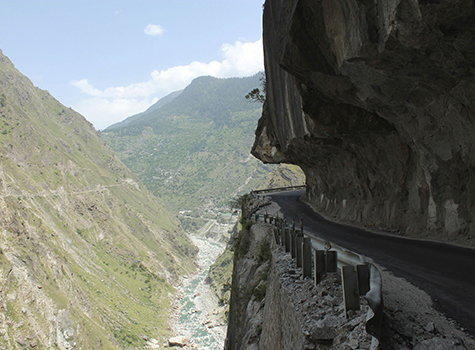By Shyama Parui

English is a funny language some say. The rules for grammar and spelling are far from clear, making it hard to learn and yet it is the lingua franca in numerous countries. Nevertheless, it has a beautiful collection of adjectives such as effervescent and pristine that add oomph to an otherwise bland conversation, whereas words like bumfuzzle or hoosegow might crack you up even under the most solemn circumstances. As a speaker there are some words that I simply reject such as “mythology†that tends to deny the beliefs of certain groups of people and the outdated term “hysteriaâ€. My outright disdain, however, is reserved for the expression “first world and third world countries.â€
If you have been reading my column for a while, you will know that I believe in breaking, not following stereotypes. The use of first, second and third world may have started with the intention of specific categorization, but these Western-centric definitions introduced in the 1960’s have generalized into labels with biased connotations. Let’s begin with “first world†which refers to “the highly developed industrialized nations often considered the westernized countries of the world.†Industrialized is a fair descriptor but “first†sounds pompous and implies that it is ahead of the rest. While that may be the case in some ways, it is not necessarily true in other.
here are multiple definitions of “third world†– thank you Merriam-Webster for helping us out.
1: the aggregate of the underdeveloped nations of the world – dealing with poverty, large populations, inadequate natural resources.
2: a group of nations especially in Africa and Asia not aligned with either the Communist or the non-Communist blocs.
3: an aggregate of minority groups within a larger predominant culture.
Countries relegated to this group were not always poor nor did they lack natural resources. A large contributor of the current wealth gap is the long-term results of colonization. India is a case in point. Heavy commercial agriculture of crops such as cotton, jute, tea, etc., in India under British rule benefited “The Crownâ€. What was grown in India was sent to the factories in the UK and often sold in the Indian markets at rates unaffordable to the average Indian. Excessive farming, taxation and atrocious money lending practices depleted the farmer’s resources forcing them to lead a hand to mouth existence. Whether India still belongs on the list of developing nations is up for debate.
And now about the “second world†countries made up of “communist nations regarded in the latter part of the 20th century as a political and economic bloc.†The infrequent use of this category is perhaps due to the perception that these places are shrouded in mystery and in the absence of free exchange of information, we build ideas that may be worse than actuality. Villains on the silver screen and novels are conveniently from these parts of the world, contributing to the negative associations. And until we receive a warm welcome to visit and explore these nations, it will be hard to experience the current reality.
From these labels, one would assume that the goal is to progress to the first world category and imitation of all its practices is desirable. However, that couldn’t be further from the truth. As most immigrants would attest, there are no absolutes, and no place is perfect. Before I arrived in the USA, I had imagined it to be a place of prosperity and openness. Poverty has been increasing visibly around us in the Charlotte area just as crime has. Homeless people holding signs that plead for help is being spotted at more and more traffic intersections. The disease of prejudice and closed-minded attitudes is eating away at the justice system and ruining political conversations. And heavy industrialization has been a bane for our environment. A prime example being the dumping of coal ash in Lake Norman by power plants that has probably risked the health of the local population. Its adverse effects will unfortunately last for a long time. Additionally, not all wealthy nations are considered safe. Pickpocketing in popular tourist destinations like Barcelona and Paris and crass bottom pinching behavior by Italians is not to be emulated.
Contrary to popular belief, first world countries could seek solutions for their current problems in third world cultures. Studying conservation, ancient healing techniques and health practices, to name a few, are a good place to start. In this context, California’s current climate crisis comes to mind. Amidst record high temperatures and unrelenting heat waves, there is a risk of introducing rolling blackouts. Tied to old habits, majority of Californians could struggle with a sudden reduction in their household electricity usage. People from Kolkata are probably very familiar with “load shedding†since there were deliberate power outages in West Bengal to conserve energy for decades. Even in Mumbai, where blackouts were rare, we were disciplined about switching off lights and fans when we left a room, as electricity was expensive unlike the US where we tend to get careless about power usage. Our give and take with nature must be proportionate or we will be forced to face harsh consequences. In fact, living in harmony with nature is best learned from indigenous tribes that have not assimilated into what we consider a modern society.
It would be wise to remember that we are all inhabitants of the same planet, and one should not only learn from one another but also be appropriately wary in every land. Don’t judge a book by its cover or a nation by its “label†because that would be dunderheaded, aka stupid.
Shyama Parui is a long time North Carolina resident and an ardent writer. You can reach her at: [email protected]



